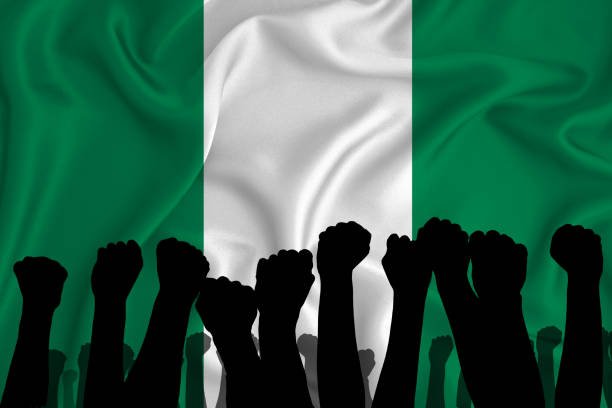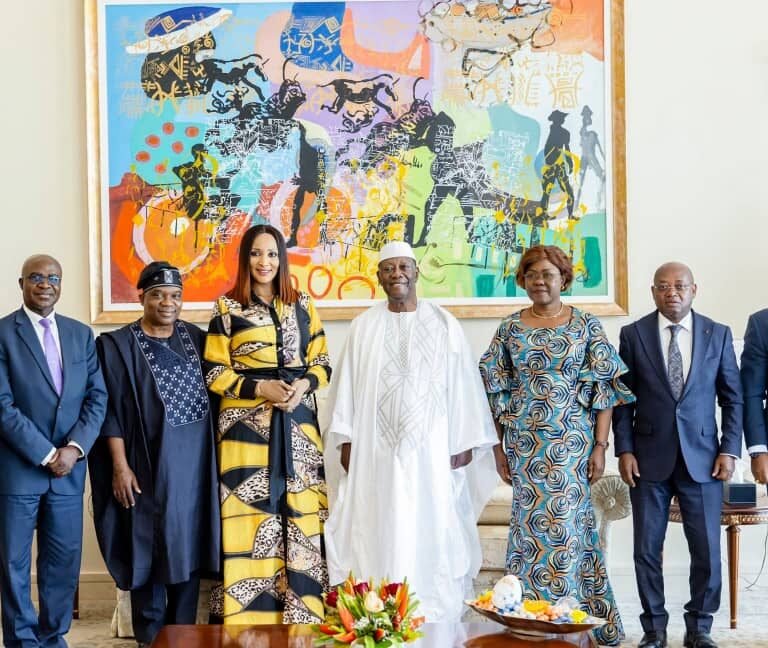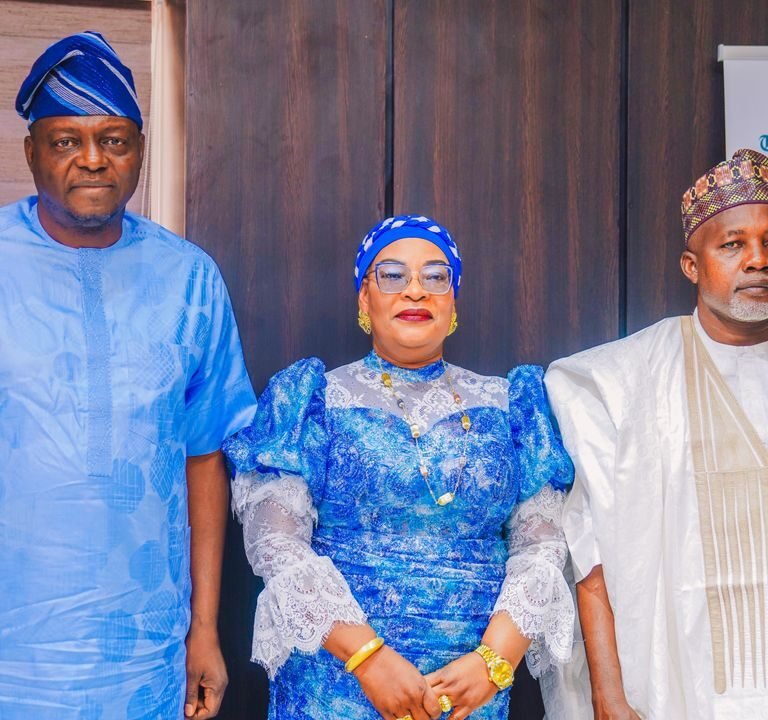
Silhouette of raised arms and clenched fists on the background of the flag of Nigeria. The concept of power, power, conflict. With place for your text.
By Media360impact Editorial Board
In a country once known for its fiery activism and public resistance, Nigeria’s streets have grown eerily silent. The banners are gone, the chants have faded, and the very spirit of protest—so central to the nation’s democratic evolution—now feels like a distant memory. But why? Why have Nigerians stopped protesting? And what are the consequences of this growing civic silence?
The Erosion of Protest Culture
From the fuel subsidy protests of 2012 to the #EndSARS demonstrations in 2020, Nigerians have shown they can mobilize in large numbers when enough is enough. But today, that spark has been dimmed not by apathy alone, but by a cocktail of fear, distrust, and disillusionment.

The Nigerian state has become increasingly intolerant of dissent. Peaceful protesters are now labeled “threats to national security.” Surveillance, arrests, disappearances, and in some cases, extrajudicial killings have sent a clear message: dissent comes at a high cost. After #EndSARS, where lives were lost and protesters were brutalized or allegedly blacklisted, many young Nigerians have retreated into survival mode, choosing silence over sacrifice.
A Nation Distracted and Disconnected
Social media, once a powerful mobilization tool has now become a double-edged sword. While it amplifies grievances, it also encourages performative activism and short-lived outrage cycles. Hashtag trends, and then die. Outrage is monetized, diluted by influencers, or derailed by disinformation. What should be national conversations turn into tribal, partisan brawls.
Add to this a struggling economy, high unemployment, and chronic insecurity, and it’s easy to understand why civic energy is low. Many Nigerians are simply too exhausted or afraid to speak out. Bread-and-butter issues have trumped political participation. The daily hustle has replaced the pursuit of justice.
The Danger of Silence
But democracy cannot thrive where citizens are afraid—or too fatigued—to raise their voices. Silence gives power to the powerful. It enables corruption, fuels impunity, and erodes accountability. Without protest, public officials are emboldened to rule rather than serve.
Nigeria’s Constitution guarantees freedom of assembly, yet today, exercising that right feels more like a gamble than a right. And this erosion of civil liberties affects not just activists but every citizen. When the public square is silenced, so too is the hope of progress.
Reclaiming the Power of Protest
To reclaim our democracy, Nigerians must reclaim the protest space not just physically, but intellectually and morally. Protest doesn’t always mean occupying streets; it can mean holding town halls, organizing petitions, boycotting unethical brands, or creating platforms for civic education. It means refusing to be intimidated or distracted by toxic political narratives.
Civil society must also rise to the challenge by protecting protesters, providing legal aid, and investing in civic education. Media must amplify not demonize youth voices and grassroots movements. And the Nigerian diaspora, which often holds more freedom to speak, must lend its voice in solidarity.
Protest is not chaos. It is not rebellion. It is the heartbeat of democracy. And for a country as richly diverse, resilient, and capable as Nigeria, silence should never be the default.
The Streets Await
The streets may be quiet today, but the struggle is far from over. Every citizen must recognize the immense power of collective action. The question is no longer “Why are Nigerians not protesting?” It is “When will we find our voice again?”
The time to speak is now. The time to act is overdue. Nigeria’s democracy depends on it.








